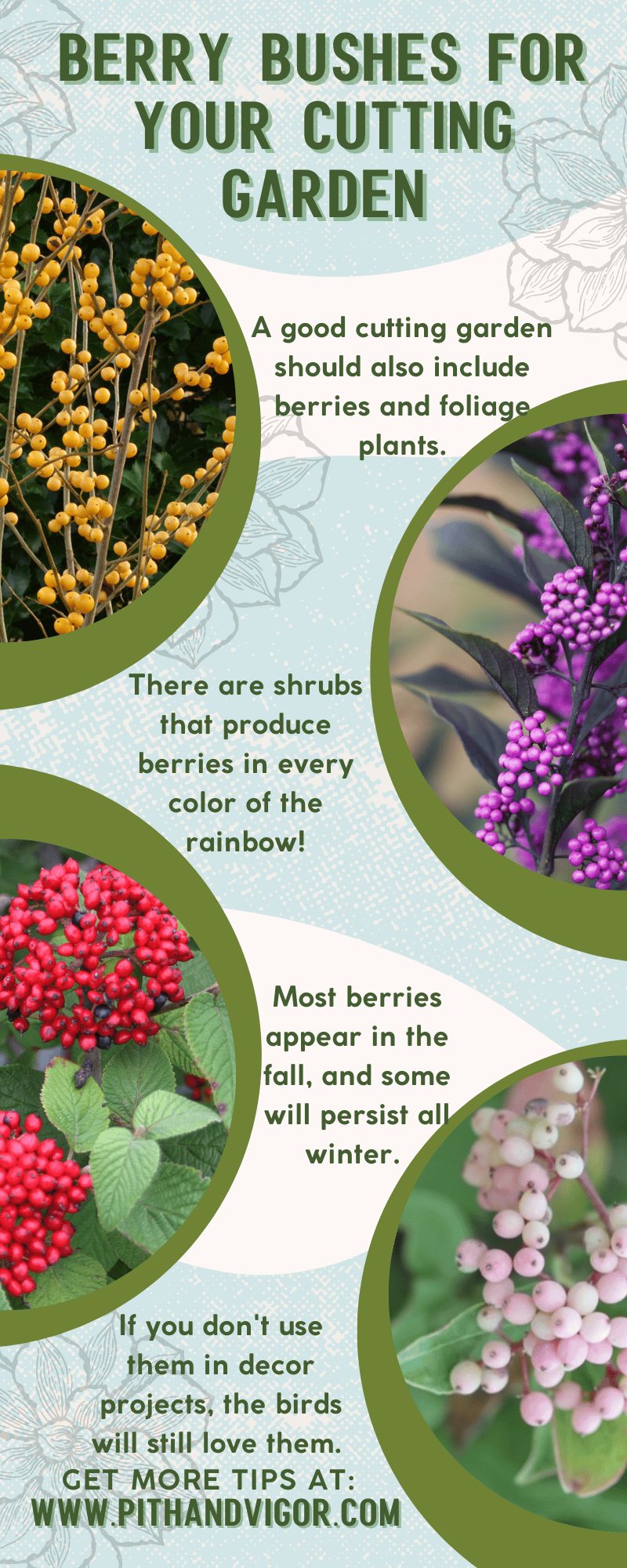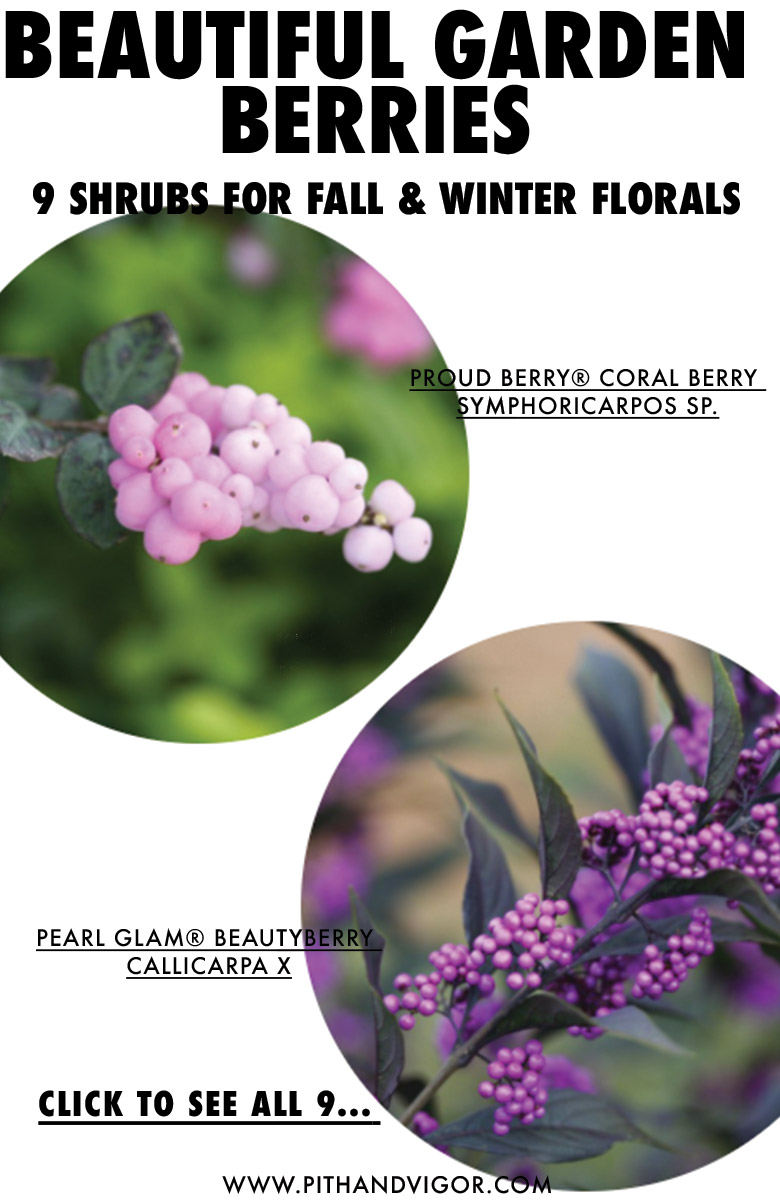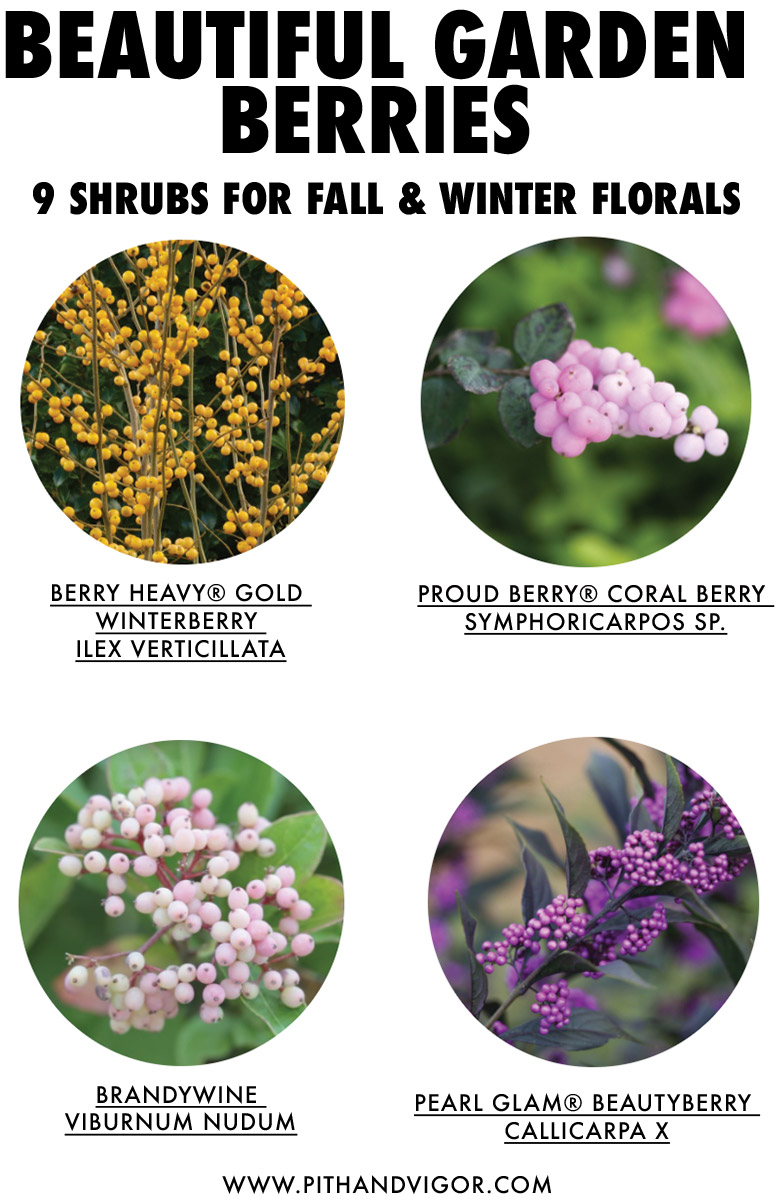Right, let’s talk about types of berries. Not the kind you eat, but the kind that provide tiny little details to the garden, that feed wildlife, that look beautiful in flower arrangements, and make for excellent floral cuttings. I’ve evolve quite a few favorites over the years. Berry shrubs, along with good foliage shrubs are often overlooked in lieu of flowers. But they are oh-so-important foundational elements to a really good cutting garden. Flowers are always going to be the star of the garden bouquet, but when blooms are sparse, berries and the texture and color of leaves and twigs can take a small amount of flowers and transform them into a gorgeous arrangement.
Floral Berries from the Garden
I have been slowly building a collection of these inspiring floral berry shrubs in my garden. If you have the land space you should try and grow some of them.
It is seriously fun, relaxing, and empowering to know that you can walk outside and snip something from a bush that will look pretty in your home. And maybe with a bit of added creativity you can combine it with a few other things that are nearby to create something even more exciting – like a simple floral arrangement. One thing always leads to another. Once I’ve started arranging flowers, I’m typically inspired to photograph my arrangement or sometimes even draw it. It is like my creativity starts to spiral on its self and I always welcome that.
I hope this will inspire you to plant, grow, take a picture, or draw, or make something else entirely. Or just enjoy that singular moment of beauty and move on leaving that snippet for the birds or other animals that live in your garden.
Nine Types of Berries to Grow For Fall and Winter Floral Arranging
There are spring and summer emerging berries that can look great in a vase (raspberries, strawberries and other edibles are all great options.) These don’t tend to last very long (mostly because I’m so tempted to pop them in in my mouth). But also because they aren’t as tough as the weather hardened boules that come on in the fall and persist to the winter.
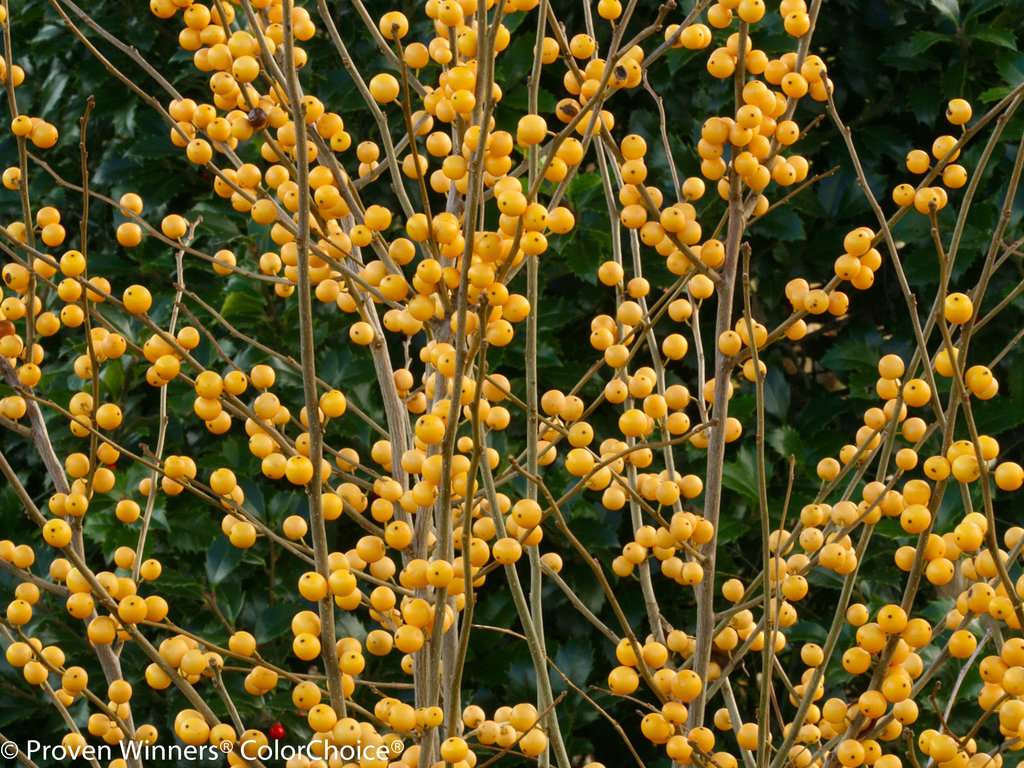
Ilex Heavy Berry Gold
I’ve been growing Ilex Heavy Berry Gold for many years and, it took at least a few years before they produced stems that were worth a harvest (they were tiny when they went in so I am, as ever, hopeful for and ever more fruitful next year!).
After you plant these holly berry bushes, they need to establish and have a healthy diet of sun. The birds are quick to eat these, so if you want to collect them, you have to be right on it. This is the same plant that produces winterberry (which is the red berry that we all associated with holiday decor) but the berry is gold. Like many Ilex varieties, these require both male and female plants, planted in proximity to each other, in order to bear fruit.
Berry shrubs with Red Berries used in flower arrangements
Plants with red berries are always prized at the holidays. There is a reason that we use them to decorate at this time of year – it is because that is when they blaze in the landscape and are easy to find and harvest.
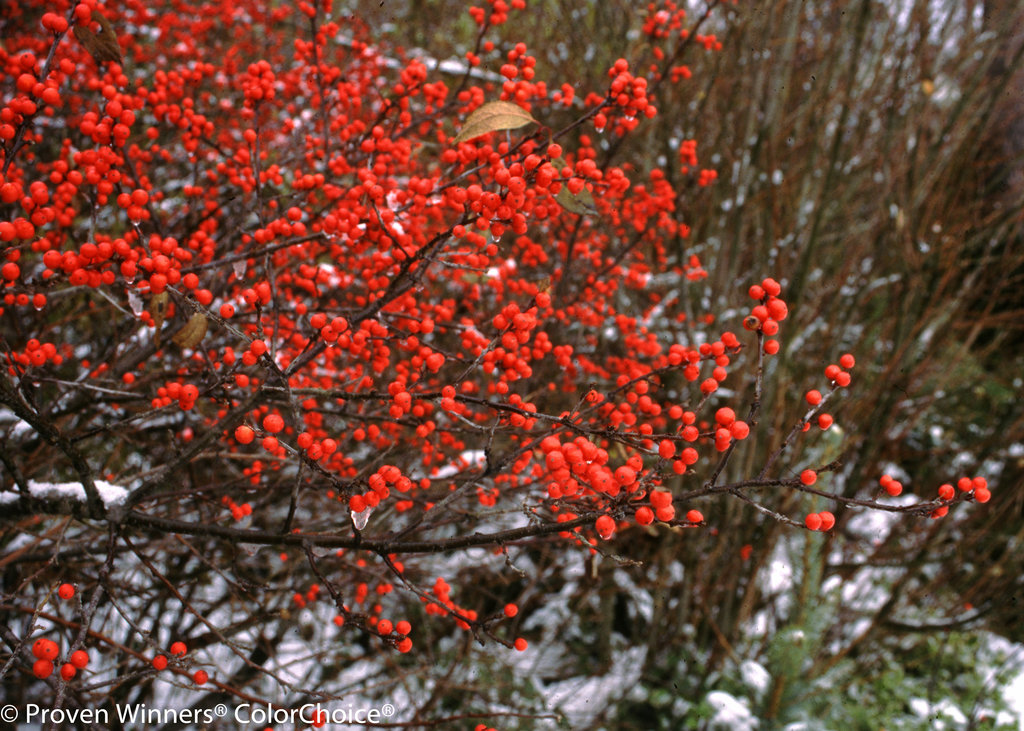
Ilex Berry Heavy Winterberry
This is the most classic shrub for holiday swags, wreath-making and general decorating. The berries remain after the leaves have fallen and are so eye-catching in a perfect shade of red. You need both a male and female plant to produce berries. Breeders are constantly refining this plant to put on ever greater profusions of berry stems. Try Berry Heavy Winterberry for the thickest stems.
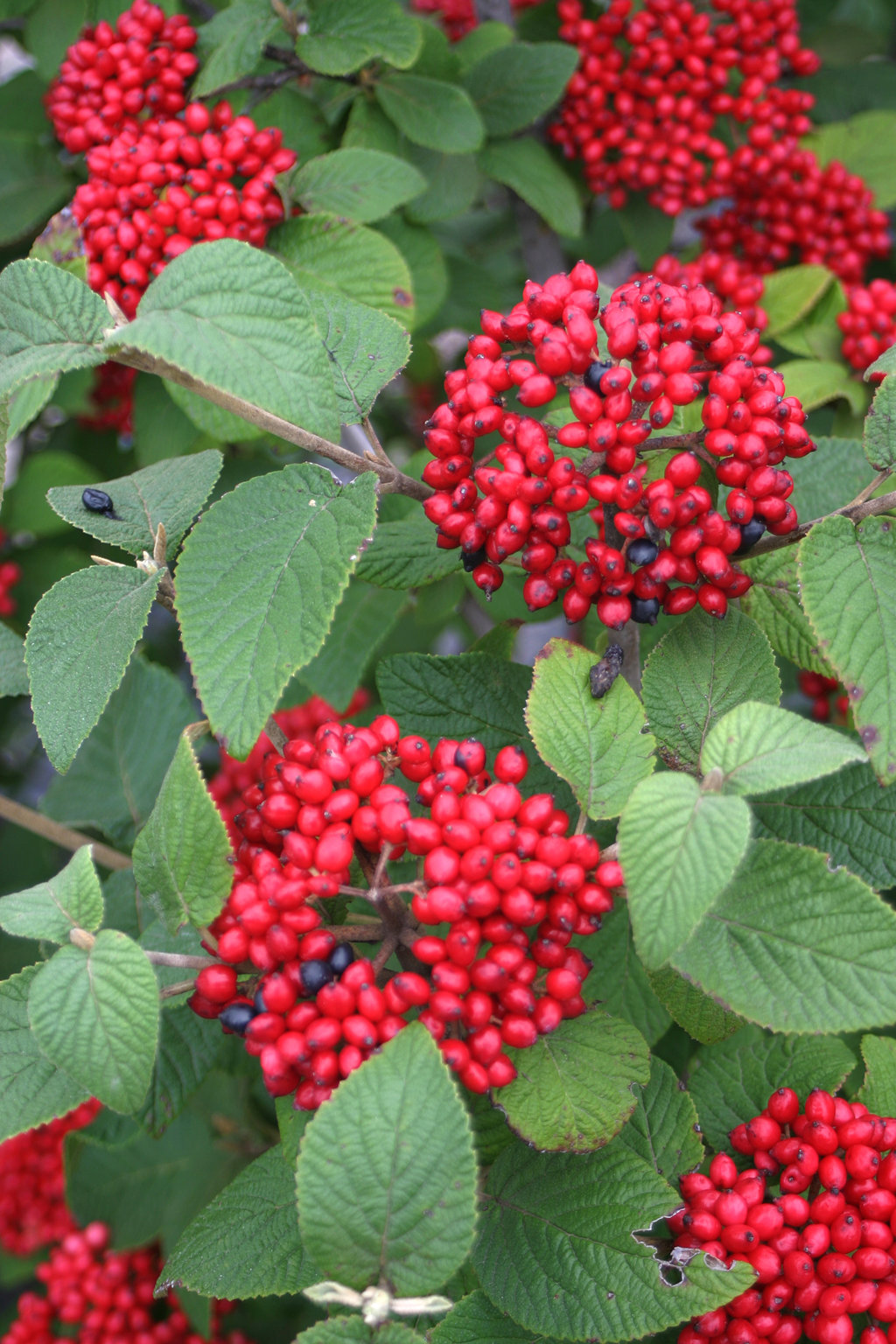
Viburnum Red Balloon – A Bush with red berries and white flowers
The showy white flower heads of Viburnum ‘Red Balloon’ turn into even more interesting clusters of red fruit in the fall. The clusters are so big that from a distance, I mistake them for large red flowers. The foliage of this plant is also very attractive and will help to fill out an arrangement. This is another plant that I have found to be very popular with the birds. The berries disappear quickly so be ready!
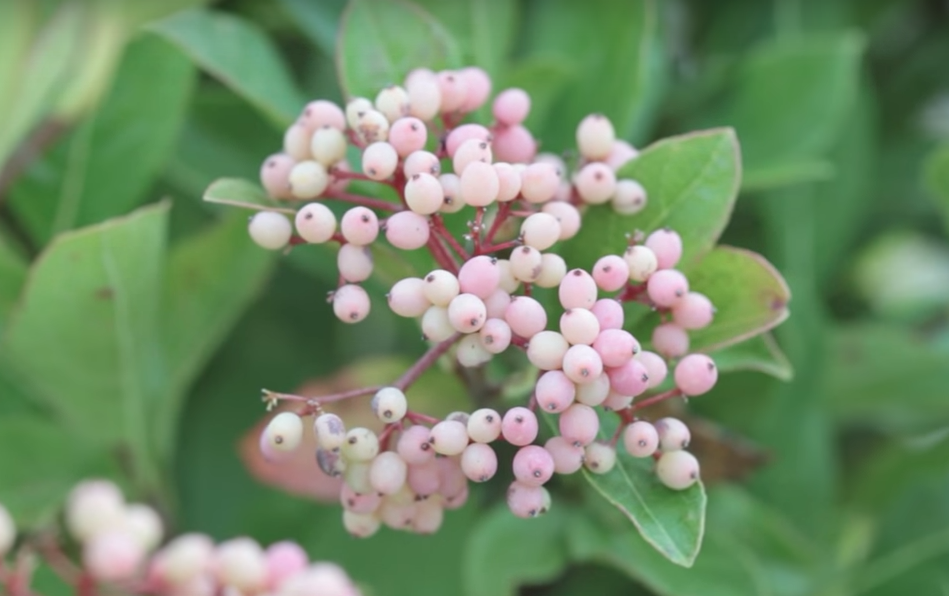
Brandywine Viburnum nudum
Brandywine viburnum is a fall favorite of many gardeners. In addition to the fading red leaves, the shrub produces clusters of showy drupes (like berries, but with a singular stone seed) that start as green in the summer and then fade into a brilliant range of pinks, and blues in the fall. Viburnum shrubs, as a group, offer a great selection of berries, you should explore the whole genus for unique options.
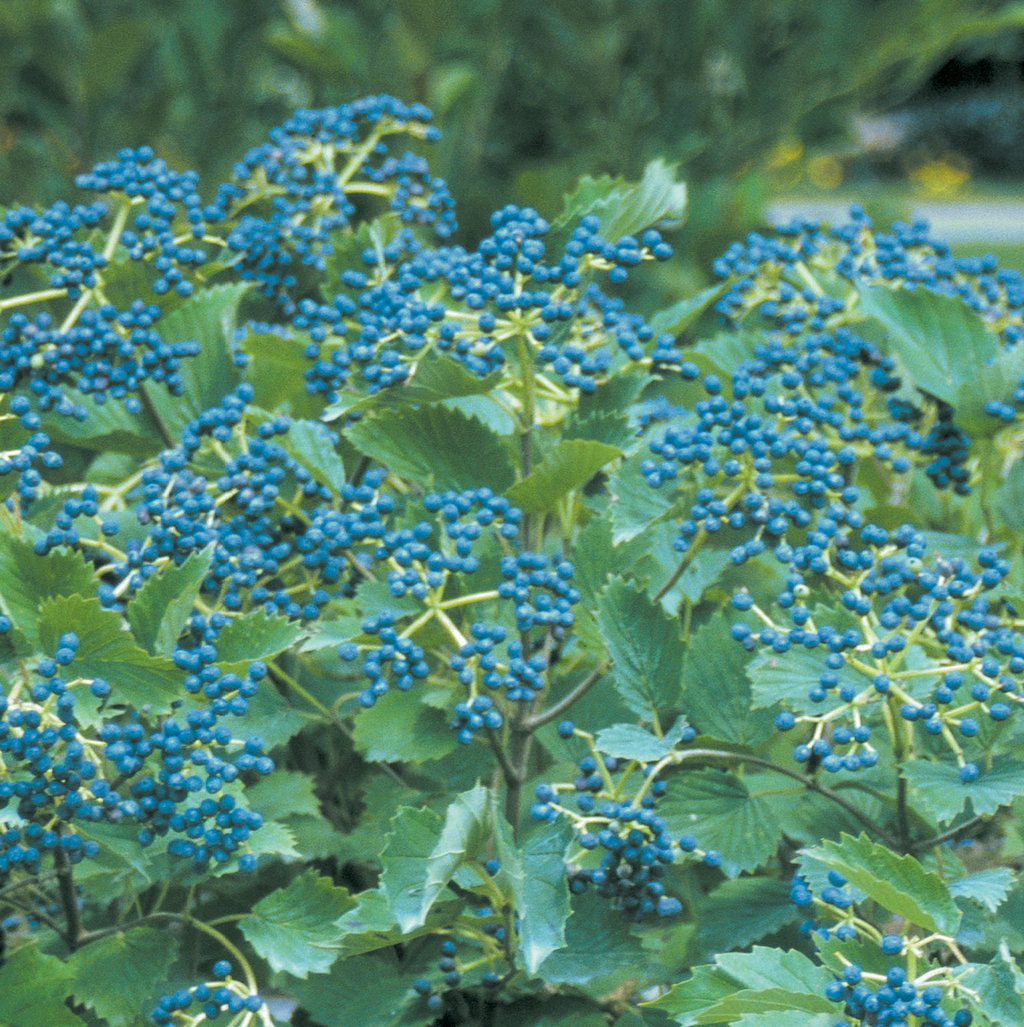
Blue Muffin® Arrowwood Viburnum – Viburnum dentatum – Blue Viburnum Berries
There is a virginia Creeper vine that drapes over a fence and the corner of my barn. Every fall I covet the beautiful blue berries and magenta stems that it produces, but they are very floppy and can be hard to use in a cut flower arrangement. Though it doesn’t have magenta stems, Blue Muffin Viburnum satisfies my desire for beautiful dusty blue berries on stems that hold up to other cut flowers.
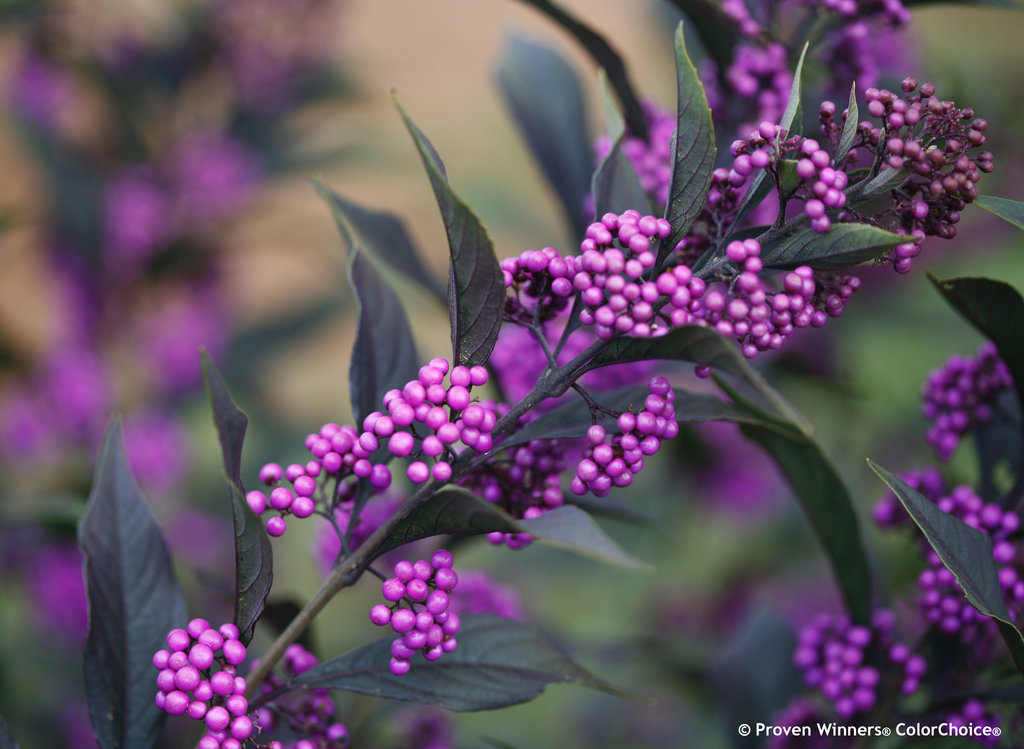
Callicarpa Pearl Glam – Clusters of purple peppercorns
Classic American Beautyberry (Callicarpa) pull in even the most unobservant people to take a closer look.
The purple berries that come on in the fall are such an unexpected and eye-catching color that you can not help but notice them. Older and native varieties of this berry shrub do not have the striking purple leaves of Callicarpa Pearl Glam and so are less interesting in the garden outside of the autumn season. Personally, I don’t think I could ever have enough Callicarpa in my garden – you can prune all of its stems full of berries and it will come back every year with even more. I’ve also had great success with propagating callicarpa with the brick method. Lay a stem down, hold it to the ground with a brick or rock, and within a season, it will root and create a new shrub that can be transplanted.
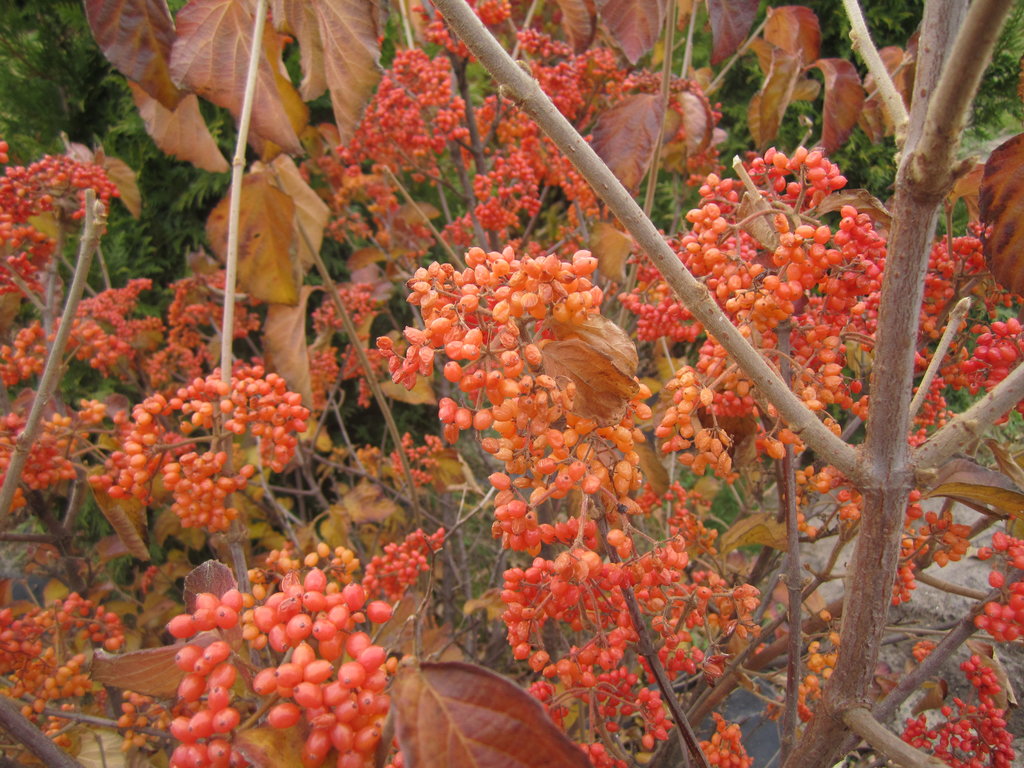
Tandoori Orange Viburnum
Orange is one of my favorite colors! Tandoori Orange Viburnum is brand new so I haven’t grown it yet. But it promises to be a vibrant addition to the garden. The orange berries would be so pretty as part of a Thanksgiving decoration.
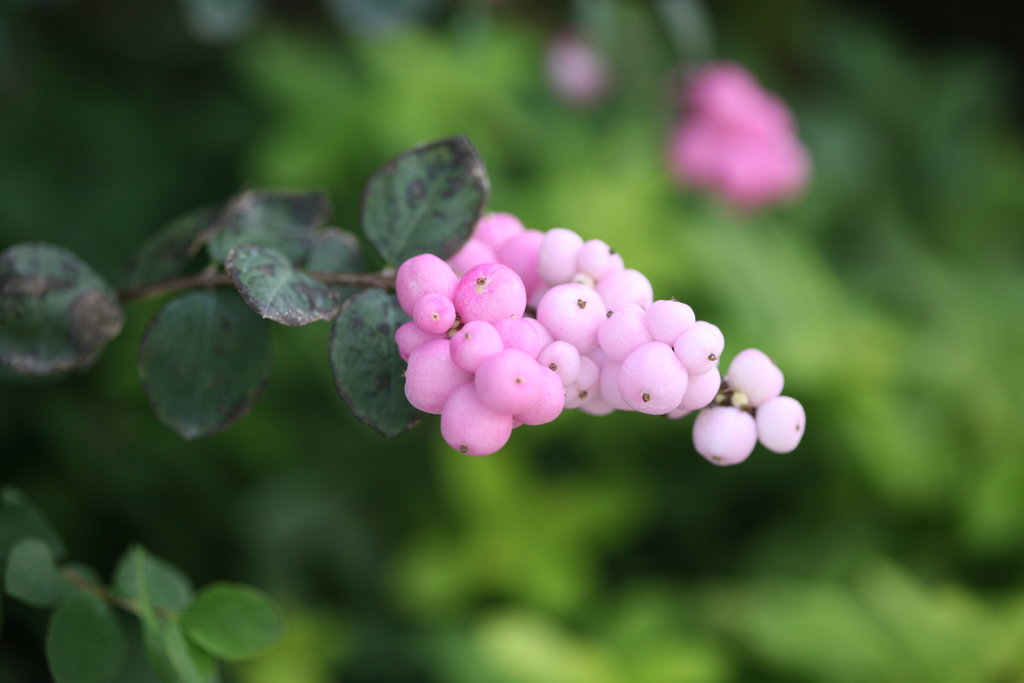
Shrub – Proud Berry® Coral Berry Symphoricarpos sp.
I have been growing an older variety of Coral Berry for a few years and love the unique color of the berries. I look forward to growing this new variety – this shrub was been bred to produce more berries in bigger clusters. These will have more of an impact both in the garden and when cutting them for arrangements. (Check this arrangement Roanne made with Coral Berries – among other fall-cutting garden beauties)

Hypericum – St John’s Wort (varieties) – St Johns Wort Berry
Most garden variety St John’s Wort shrubs are smallish (typically less than 3′ in diameter) and produce a profusion of yellow flowers. The seed-filled fruit that persists after the blooms have passed are also quite pretty and sought after by florists. Depending on the variety, the color, size, and density of the pods can vary. Some are inky blue-black, but also many shades of green and rosy pink colored. Grow a selection for a wide range of choices.
You might also be interested in these berry-related posts:
Photo Credits:
All images courtesy of Proven Winners or By Rochelle Greayer.
This post is sponsored by Proven Winners.
Share this Post:
